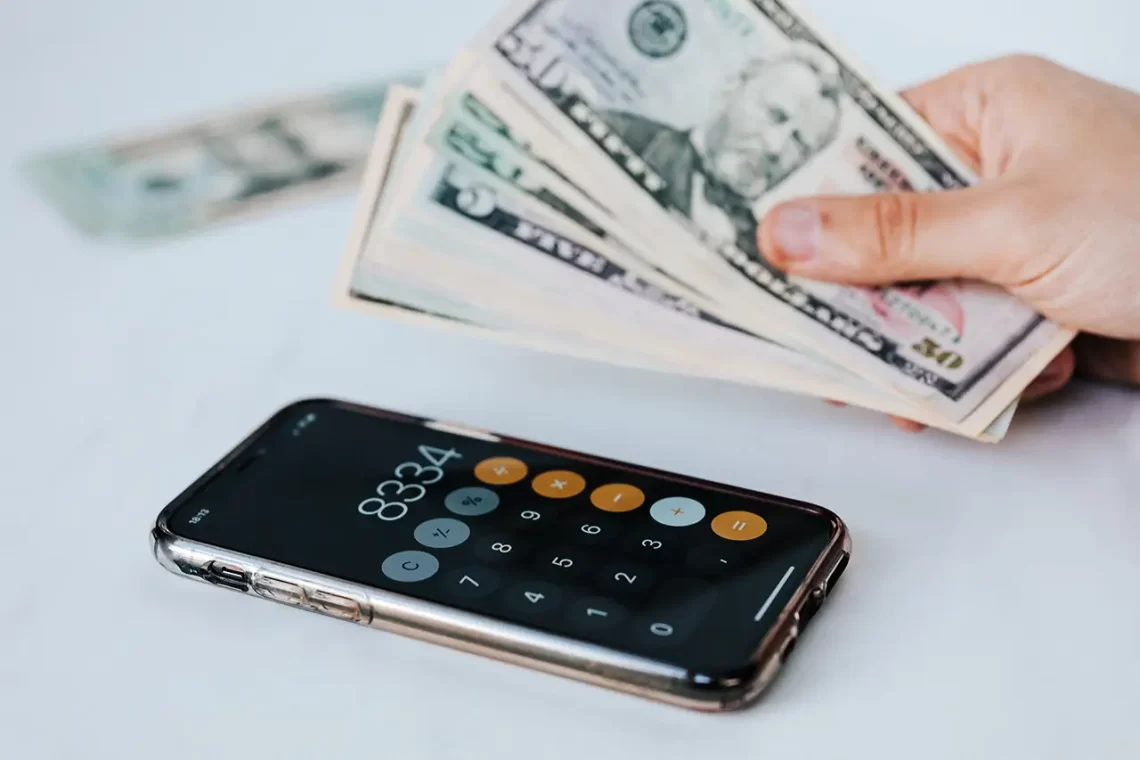
How to Reduce Your Cell Phone Bill
Reducing your cell phone bill can make a big impact on your expenses, so it’s crucial to secure the best deal possible. Here are some tips for securing a good deal or renegotiating your cell phone bill:
Know Your Usage
Before you start looking for a new cell phone provider or negotiating with your current one, it is important to know your usage. This includes the amount of data you use, how many minutes you talk on the phone, and how many text messages you send. This information will help you find a plan that best fits your needs and ensures that you are not paying for services you don’t use.
Shop Around for the Best Deals
One of the best ways to reduce your cell phone bill is to shop around for the best deals. This can be especially important if you are coming to the end of your contract, as you will have more negotiating power with your current provider. Take the time to compare prices and packages offered by different providers and be sure to consider factors such as coverage maps, call quality, data limits, and customer service. This information can then be used when negotiating with your current provider or when choosing a new one.
Be sure to include low-cost and discount cell phone providers, such as Mint Mobile and Boost Mobile, in your research, as they offer an alternative to traditional major carriers while often still running on major carrier networks. They can help save money on monthly cell phone bills. These providers offer lower prices, often significantly lower, compared to traditional carriers.
Take Your Phone With You
If you purchased your phone through your current provider and it has been paid off, in the United States you have the legal right to take your current phone and phone number with you to a new provider. If your phone is locked to your current provider, there is a process to deal with a locked phone when you want to switch to a new provider. If your phone is locked, it means that it can only be used with your current provider’s network and cannot be used with another network without first unlocking it. To unlock your phone, you need to contact your current provider and request an unlock code. They may ask you to provide proof of ownership, or they may charge a fee for unlocking the phone. Once you have the unlock code, you can enter it into your phone to unlock it and use it with a new provider. If you already own an unlocked phone, this is not an issue.
It is important to note that unlocking your phone does not guarantee that it will work with all networks, as it may only be compatible with certain frequencies and technologies. Before making the switch, it is recommended to check with the new provider to ensure that your phone is compatible with their network and that there are no other restrictions.
Negotiate
Negotiating with your cell phone provider can be a daunting task, but with a little bit of preparation, it can result in a significant reduction in your monthly bill. Here are a few strategies you can use when negotiating with your provider:
Under Contract:
- Know your usage: Keep track of how many minutes, text messages, and data you are using. This information will give you leverage in negotiations with your provider. If you are using more data than you thought, you can ask for a better plan that suits your needs.
- Know your rights: Read your contract carefully to understand what you are entitled to and when your contract is up for renewal.
- Talk to the right department: When calling your provider, ask to speak with the customer retention department. This department is dedicated to keeping customers and will often have more flexibility in negotiating a better deal for you.
- Be polite but firm: When negotiating, be polite but also firm in your demands. Explain your situation and what you want to achieve and let the representative know that you are considering switching providers if your needs are not met.
Not Under Contract:
- Shop around: If you are no longer under contract, take advantage of the opportunity to shop around for the best deal. Compare prices and plans from different providers and make an informed decision.
- Take advantage of promotions: Look for promotions that are available from your current provider or other providers. These promotions can often result in a significant reduction in your monthly bill.
- Consider switching providers: If you are not satisfied with the offers from your current provider, consider switching to a different provider. Make sure to check the coverage, prices, and plans before making the switch.
- Don’t be afraid to ask: Don’t hesitate to ask your provider for a better deal. Explain your situation and what you are looking for and see if they can offer you a better plan or a discount.
Do not get talked into buying a new phone if you don’t really need one. You are trying to save money, not spend more.
Remember, the key to successful negotiation is preparation. Know your usage, understand your contract, and be polite but firm when negotiating with your provider. With a little bit of effort, you can reduce your cell phone bill and keep more money in your pocket.
Consider Switching to a Prepaid Plan
Prepaid cell phone plans, also known as pay-as-you-go plans, have become increasingly popular as consumers look for ways to save money on their monthly cell phone bills. In these plans, you purchase a certain amount of minutes, texts, and data upfront and use it as needed. There are several pros and cons to consider when deciding if a prepaid plan is right for you.
Pros:
- Cost savings: One of the biggest advantages of a prepaid cell phone plan is that it can be much cheaper than traditional postpaid plans. This is especially true for people who don’t use a lot of high-speed data. Prepaid plans allow you to pay only for what you need, and there are typically no hidden fees or charges.
- Good for single people: Major providers often offer multi-line discounts for families, but for the single person, there are rarely such offers. Single people often get better deals from prepaid plans.
- No contract: With no contract, you aren’t tied to your provider.
- Flexibility: Another advantage of prepaid plans is the flexibility they offer. Most plans offer unlimited talk and text. The lowest priced plans tend to have limits on high-speed data, but will allow you to continue to use data at a slower speed beyond your high-speed allowance. Other plans offer unlimited data.
- No credit check required: Unlike postpaid plans, prepaid plans don’t require a credit check. This means that people with bad credit can still have access to a cell phone plan.
Cons:
- Limited data for lowest priced plans: One of the biggest drawbacks of the lowest priced prepaid plans is that they often have limited high-speed data allowances. If you use more data than you’ve purchased, you may have to purchase more or face slower speeds. This can be a disadvantage for people who need a lot of data each month.
- No smartphone discounts: Another disadvantage of prepaid plans is that you don’t get the same discounts that you might with a postpaid plan. This means that you may have to pay the full retail price for your smartphone, which can be expensive.
- International data may be limited: Depending on the provider, you might not be able to use your high-speed internet allotment while traveling to other countries.
- No perks: Many contract plans include perks, such as free streaming video or premium internet radio subscriptions. With prepaid plans, you get none of that.
- Not suitable for families: If you need multiple lines, you are usually much better off with a traditional cell phone plan that offers multi-line discounts. Prepaid plans usually don’t offer any sort of discount for multiple lines.
Before choosing a prepaid plan, it’s important to consider your monthly usage and budget to determine if it’s the right choice for you.
Use Automatic Bill Pay
Some cell phone providers offer discounts for customers who sign up for automatic bill pay. If you’re looking for ways to save on your cell phone bill, consider enrolling in automatic bill pay. Be sure to review each payment, however, to make sure you are being billed the correct amount.
Remove Unnecessary Features
If you have features on your cell phone plan that you don’t use or under-utilize, consider removing or reducing them. This can help you reduce your monthly bill and save money. For example, if you are paying for unlimited data, but only using a small amount of data monthly, a limited data plan might be a lower-priced option.
By using these tips, you can negotiate a better deal on your cell phone bill and put some extra cash back in your pocket each month.




